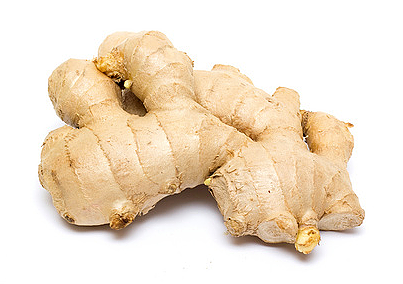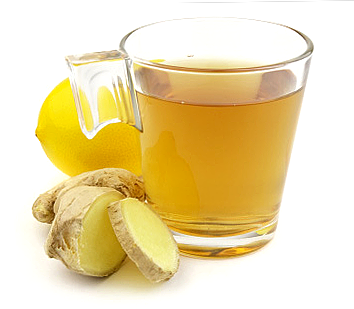Popular Articles
- Thyax Supplement Facts
- Best Thyroid Supplements
- Natural Alternatives to Synthroid
- T3 - Weight Loss
- Thyroid Health - Natural Ways to Boost an Underactive Thyroid
- Armour Thyroid Review: Drug for Underactive Thyroid
- Thyroid Health | How to Boost T3 and T4 Levels
- Thyroid Health | The Best Vitamins for Hypothyroidism
- Best Weight Loss Supplements for Men and Women
- TSH Range - Understanding Your Thyroid Test Results
- More Articles ...
 Ginger for Losing WeightIn This Article
Ginger is an important spice and herb. It has been well studied for its weight loss potential and the results indicate ginger does work. Find out how ginger promotes weight loss, how it should be taken and what to expect from including ginger in your weight loss plan.
What is in Ginger?Ginger refers to the rhizome of Zingiber officinale which has culinary and medicinal uses. Although native to South Asia, it is also now commonly grown in the Caribbean and East Africa. Ginger is a common spice in many Asian dishes and the young rhizomes are quite supple and edible. The dry, fibrous ginger rhizomes are the ones commonly used as spices, preservatives, and flavoring agents. They are usually powdered and used in the preparation of confectioneries such as gingerbread and drinks such as ginger ale and ginger beer.
The gingerols are volatile oils that have been shown to be responsible for the analgesic, anti-inflammatory, antibacterial, antipyretic, gastrointestinal motility, and sedative effects of ginger. These oils also show promise as anti-cancer drug candidates in different preliminary studies. Some of the gingerols turn into shogaols and zingerone when ginger is cooked or dried. Shogaols give ginger its pungent taste while zingerone is responsible for the spicy aroma of the herb. Ginger also contains essential oils with zingiberene being the major fraction of these oils. Other popular essential oils found in ginger include farnesene, cineol, and citral. Fresh ginger contains 80.9% moisture, 0.9% fat, 12.3% carbohydrate, 2.3% proteins, 2.4% fiber and 1.2% minerals. Ginger root or rhizome contains B vitamins, vitamins A and C as well as iron, potassium, and phosphorus. It is also rich in dietary fiber. The ground roots have a higher nutritional value than the raw root. Health Benefits of GingerIn traditional medicine, ginger has long been used to treat gastrointestinal disorders including constipation, gas, diarrhea, nausea, and colic. Curiously, modern medical research has found more use for ginger than traditional medicine. Some of the new indications for ginger include its use in the treatment of nausea and vomiting due to motion sickness, cancer chemotherapy, or pregnancy. It is also sometimes used in adjunctive therapy in cancer treatment and heart disease. Ginger has also been proven to reduce joint pain in osteoarthritis. Preliminary studies indicate that ginger can reduce cholesterol levels and prevent the formation of blood clots. The treatment of nausea and vomiting is the most researched aspect of the health benefits of ginger. The results are not always positive but there are enough well-designed studies that prove the usefulness of ginger in the treatment of vomiting of varying causes. How Ginger Affects WeightServing as a Digestive Aid
The combination of these two effects means that essential nutrients are absorbed quickly while the non-essential foods that cause bloating and constipation are excreted quickly. An efficient digestive system can help process ingested food more efficiently, and this can contribute to weight loss because the bulking parts of ingested foods can be efficiently processed and eliminated from the body. In addition, efficient digestion means the optimal use of the energy store of the body. Therefore, the processes involved in digestion can help use up the glucose in the blood as well as stored fat. By Improving MetabolismA number of studies suggest that ginger is also a thermogenic agent that can help burn fat. A Dutch study confirms that ginger can boost the body’s metabolic rate and should be recommended for treating obesity. In addition, there are reports that ginger can boost metabolism by up to 20%. By increasing the rate of metabolism, ginger can help burn off some of the fat stored up in the body. This not only translates to weight loss but can also help reduce cholesterol and triglyceride levels as the body burns all the fat it is provided. By Enhancing SatietyGinger was once believed to promote weight loss mostly by affecting the metabolic rate. However, a new mechanism into how ginger works has been unearthed in a 2012 study published in the journal, Metabolism. The study was published by researchers from the New York Obesity Research Center and Columbia University, and it involved 10 healthy but overweight adult men. The researchers gave the group ginger tea (prepared with 2 g of dried ginger powder) to accompany their standard breakfast for one day and then only the standard breakfast on the next day. The researchers then monitored the feelings of hunger before breakfast (with or without the ginger tea) and every hour thereafter as well as the calories burnt. The results of the study showed that ginger had a significant effect on the feeling of satiety after eating. This effect was significant even with a single dose of ginger and well before the thermogenic and cholesterol-lowering effects of ginger could kick in. This study shows that ginger can improve weight loss by enhancing the feeling of fullness after a meal. By suppressing appetite, ginger supplementation is an effective way of avoiding ingesting more calories from food, and therefore, losing weight. Taking Ginger for Weight LossGinger is available both as fresh or dried roots. These can be used in various ways including in the preparation of food or to make ginger tea. As an herbal supplement, ginger is also supplied in the form of extracts, capsules, tinctures, and oils. Ginger should not be given to children under the age of 2 and even adults should consult with their physicians first before taking ginger especially if they are currently placed on other drugs or supplements. There are no standard doses of ginger for weight loss. However, the maximal daily dose is 4 g. Pregnant women should not take more than 1 g per day of the herb.
The side effects of ginger are rare and the Food and Drug Administration (FDA) recognizes the herb as safe. Still, some of the common side effects reported include heartburn, belching, stomach upset, diarrhea, and irritation of the mouth. These can be avoided by taking the capsule form of the herbal extract. Ginger is generally not recommended for people with heart conditions, diabetes, and bleeding disorders. In addition, it should not be combined with anticoagulants such as warfarin and even aspirin to prevent excessive bleeding. Similarly, ginger should not be combined with diabetes medications because it lowers blood sugar levels and may precipitate hypoglycemia. Anti-hypertensive drugs should also be avoided since ginger lowers blood pressure and may cause hypotension. Is ginger effective for achieving weight loss? Yes, but the results are only modest. Rather than using only ginger in your weight loss plan, you should combine it with some other weight loss supplements. Furthermore, the best results are obtained by combining ginger supplementation with exercise and a restricted diet. Sourceshttps://www.emedihealth.com/ginger-benefits-risk.html http://www.peakhealthadvocate.com/3625/weight-loss-ginger/ http://www.healthdiaries.com/eatthis/ginger-for-weight-loss.html
[+] Show All
|
| Next Article: Low T3 and T4 Levels? Boost it: Heres How... |





 The characteristic odor and flavor of ginger are due to different groups of phenol compounds such as gingerols, shogaols, and zingerone.
The characteristic odor and flavor of ginger are due to different groups of phenol compounds such as gingerols, shogaols, and zingerone. Ginger can improve digestion by increasing the pH of the stomach and stimulating the digestive enzymes. Because ginger also has high fiber content, it increases gastrointestinal motility.
Ginger can improve digestion by increasing the pH of the stomach and stimulating the digestive enzymes. Because ginger also has high fiber content, it increases gastrointestinal motility. A common way to take ginger is to make ginger tea by adding ½ teaspoon of the powdered herb to 4 – 6 ounces of hot water. Once dissolved, the tea can be sweetened as needed.
A common way to take ginger is to make ginger tea by adding ½ teaspoon of the powdered herb to 4 – 6 ounces of hot water. Once dissolved, the tea can be sweetened as needed.